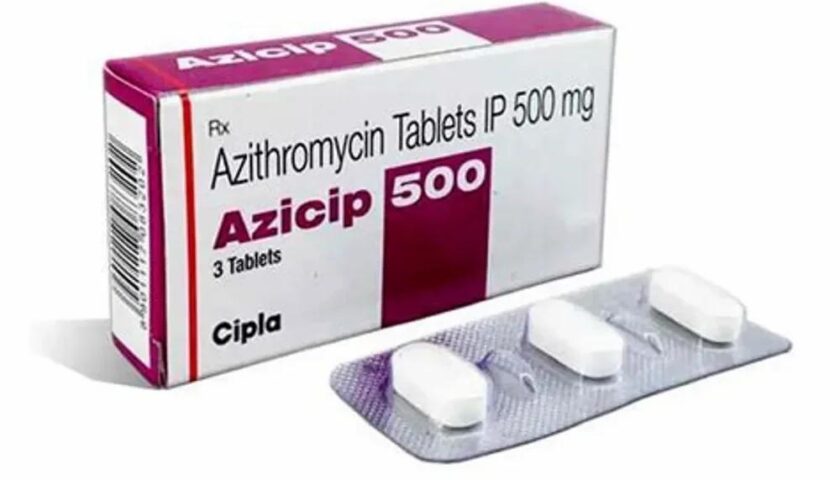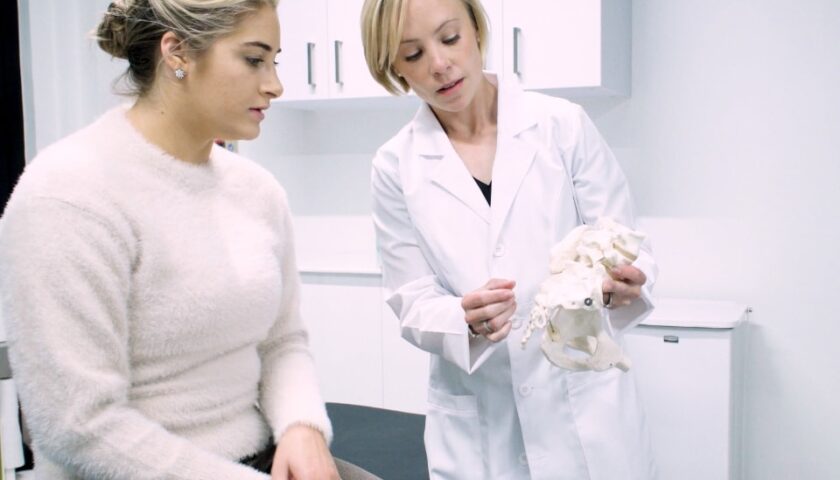If you are struggling to overcome your depression symptoms, and have used different medication combinations or dosages. But symptoms persist. It might be possible that you have treatment-resistant depression. It signifies that the therapies covering TMS, ECT, or CBT therapy have become ineffective. To get immediate relief from anxiety, depression, and other mental health conditions, you should opt for another therapy to reduce the effects of depressive disorders.
Reading the article helps you know about ketamine therapy and how therapy works by activating brain cells. A brief introduction to ketamine lets you know the causes of discovering this emerging modern treatment to relieve the major symptoms of depressive disorder. The main focus of this informative blog is to guide readers to choose the right therapy that improves cognitive skills and brain functions. Knowing about the safe procedure and side effects of ketamine allows you to know different forms of Ketamine. The most appropriate treatment approved by the FDA for depression is a nasal spray called Esketamine (Spravato). This therapy is beneficial for those who don’t take antidepressant pills. The extensive research about Ketamine lets people know the key differences between ketamine vs. traditional antidepressants and their impact on daily functions and enhancing quality of life. Moreover, the article provides updated information regarding ongoing research on ketamine and how the potential innovations and therapies of Ketamine rewire brains to cope with major indications of depression disorder.
The Prevalence of Depression and Search for Effective Treatment

If you have a common mental disorder that makes you feel frenzy, mood swings, frustration, and loss of pleasure in life activities. It signifies that you are living with acute symptoms of depressive disorders. Today, depression has become a serious and widespread mental illness that disrupts life patterns. It negatively affects all aspects of life, including relationships with family, friends, and community. Consequently, depressive episodes trigger emotional and physical problems that adversely impact brain function. Some people have seasonal depression. Seasonal affective disorder occurs due to changing environmental factors. Mental health experts believe that genetic factors cause depression; however, there are various other factors including social, psychological, and biological factors, death of loved ones, and traumatic events that aggravate the risk of depression in people of all ages. The feeling of intense sadness and loneliness causes manic depression. An individual suffers from unipolar disorder that leads to negative behavioral and thinking patterns. Another acute form of depression is retarded depression. Usually, elderly people experience personality disorders such as emotional instability, hallucination, and unbalanced mind.
World Health Organization Report (March 2023) states that anyone can be affected by depression. Approximately 280 million from different parts of the world are experiencing either mild or acute depression symptoms. Serious warning signs of depression cause anxiety, and post-traumatic stress disorder and have triggered suicidal deaths in young individuals ranging from 15–29 years.
To cope with depressive episodes, people undergo different treatments for depression. Psychological treatment comprises talk therapy sessions with a psychologist. The therapist imparts new ways of thinking and coping techniques that reduce symptoms of depression. The therapy sessions include behavioral activation, interpersonal psychotherapy, and problem-solving strategies.
If severe depressive disorder persists, psychological treatments are combined with antidepressant medications. Antidepressants lessen the impact of stress on the brain, and the inflammation in the brain also gets reduced. Certified antidepressant medications approved by the FDA are considered safe and effectively increase the brain’s capacity to cope with stress and depressive disorders. Clinical reports state that antidepressant therapy has helped in stimulating cognitive functions, balancing mood and personality, and improving psychological conditions.
The alternate novel treatment option to treat acute depression is Ketamine. It is a modern treatment approach involving anesthetic medication that fixes neurochemical imbalances in the brain and treats different mental health disorders such as depression and anti-suicidal action. Initially, Ketamine antidepressant medication was approved by the FDA in 1970 to treat injured soldiers in the Vietnam War. The increasing number of behavioral health disorders, depression, anxiety, and PTSD in people allow neurologists to perform broad research regarding using Ketamine to reduce depression. The increasing influence of Ketamine in decreasing anti-anxiety effects has enthused specialists to use Ketamine drugs to cure mental illness. Ketamine medications target different sections of the brain, help manage treatment-resistant depression, overcome suicidal thoughts, and revitalize brain functions. Consequently, patients who haven’t benefitted from traditional antidepressants have achieved sustained results using Ketamine therapy.
Overview of Traditional Antidepressants

Antidepressant medications alleviate symptoms of depression, anxiety, and other mental health illness. People who experience serious depression symptoms complain of growing signs of pessimism, low self-worth, and self-doubts about their personality. They struggle with anxiety disorders and uncontrollable emotions. Disrupted thinking patterns also affect mood and bring personality changes. Researchers have established that the effectiveness of antidepressants has helped boost energy levels, improve thinking and cognitive process, and increase memory, and sleeping cycle. Hence, it helps improve overall quality of life.
Various forms of antidepressants are increasingly used across the world. Some of the commonly used antidepressant drugs are
SSRIs (selective serotonin reuptake inhibitors), an antidepressant are widely used for the treatment of depression and other psychiatric disorders. SSRIs work through a neurotransmitter that regulates mood. The antidepressant is safe, and effectively used to treat panic disorders and obsessive-compulsive disorders.
SNRIs (serotonin and norepinephrine reuptake inhibitors) are used to reduce the symptoms of anxiety, depressive disorders, and chronic pain. The antidepressant SNRIs increase serotonin and norepinephrine levels in the brain. Both neurotransmitters regulate sleep cycle, and memory and improve social behavior and temperament. Norepinephrine helps people increase concentration and focus.
Atypical antidepressants are unique medications that work in different ways. They work effectively for people who receive intense side effects of antidepressants or have treatment-resistant depression. Comparable to other antidepressants, atypical antidepressants work by activating the nerve cell’s electric circuit and functions.
Tricyclic antidepressants (TCAs) is recently developed antidepressant that treat mental health conditions such as depression and panic attacks. The antidepressant uses neurotransmitters that strengthen connections between nerve cells and increase the levels of the two neurotransmitters, serotonin and norepinephrine in the brain. Esketamine (Spravato) is another effective antidepressant that helps in treatment-resistant depression. The nasal spray is used in combination with an oral antidepressant to treat chronic depression. Various antidepressants work by inducing neuroplasticity, a neuro-transmitting process that brings changes in brain chemistry and trigger brain nerve cell circuit. In general, antidepressants may take a few weeks to improve the existing mental health conditions. Some patients also face mild side effects like appetite loss, headaches, drowsiness, or weight gain.
Ketamine and Emerging Therapy for Patients with Depression

Ketamine was introduced in 1970. Earlier, the Food and Drug Administration (FDA) only approved antidepressant medication to be used to treat depression. However, it took several weeks to months to work successfully. Therefore, researchers at Columbia University Irving Medical Center worked with patients who have not responded well to traditional forms of medication, antidepressant medications, or psychotherapy. They came up with a modern clinical approach for treatment-resistant depression known as Ketamine therapy. In the beginning, FDA-approved therapy was given to injured soldiers of the Vietnam War. The medicine prevented aggressive militaries from committing suicide. Consequently, the experts realized the powerful influence of the medicine against depression and suicidal thoughts. It was then the senior medical team at Columbia Doctors Psychiatry recommended Ketamine therapy to treat patients with a wide variety of mental health conditions.
Ketamine treatment therapy comprises low doses of medicine that are infused into the body in two ways. The intravenous (IV) infusion is directly injected into the bloodstream. Ketamine infusion at least takes 40 minutes to an hour to start working. Before beginning the procedure, the patient is given anesthetic medication to avoid pain. The entire procedure is monitored by experts to observe the quick results of Ketamine in reducing symptoms of depression and other mental health disorders. As compared to intravenous (IV) infusion, many patients prefer the alternate method of delivering Ketamine medicine. Recently, approved by FDA, Ketamine is now inserted through an intranasal spray known as Intranasal Esketamine. This treatment is now commonly administered in structured clinical settings and monitored by experienced neurologists.
How ketamine Treat depression and Improves Mental Health Treatment
Ketamine treatment comprises a few in-clinic Ketamine medicating sessions with experienced clinician supervision. The therapy works by blocking the activity of the N-methyl-D-aspartate (NMDA) receptor in the brain. Generating glutamatergic signals in the brain releases neurotrophic factors that regulate mood, and cognitive functions, and restore neural circuits. The mechanism of Ketamine’s psychedelic-assisted therapy also involves releasing vascular endothelial growth factor (VEGF), and insulin-like growth factor 1 (IGF-1) that prevent neuro-structural abnormalities that increase depressive disorders.
Ketamine therapy takes place in both outpatient and intensive care units (ICU). It is observed that many patients involved with major depression, PST, or relieving pain perception received quick-acting antidepressant effects. Consequently, some patients recovered within hours after the treatment. Other people reported achieving constant improvement in their mental condition in a few weeks.
The potential benefits of using Ketamine treatment help in creating strong neural activity that helps the brain and different cellular nerves to function normally. Applying this treatment plan helps the patient put an end to undesirable thinking patterns, behavior, and changing moods. People suffering from OCD get the benefit of availing of behavioral therapy known as aversion therapy. The therapy for OCD works by combining electric shock with unwanted obsessive thoughts. The procedure builds an association between the stimulus and the unwanted behavior. Consequently, Ketamine averts negative stimuli or thoughts to reach the brain. Hence, the fast-acting medicine allows patients to regain vitality, and develop cognitive abilities by reducing neurochemical imbalances.
Comparative Analysis of Ketamine and Traditional Antidepressants
If you are looking for treatment for major depression disorder, you can opt for Ketamine therapy. It has a different mechanism of action that is helpful for patients who are unable to resist traditional treatments and antidepressant medications.
Difference between Ketamine Treatment and traditional Antidepressants
Ketamine therapy works by increasing mood-regulating neurotransmitters in the brain. The medicine is given in an anesthetic operating room. The treatment follows multiple ways, the most commonly used method is intravenous (IV) therapy. The experts also use nasal sprays, intramuscular (IM) injections, and lozenges to perform Ketamine therapy. The most common antidepressant medications such as SSRIs, and SNRIs, change the level of serotonin and norepinephrine in the brain. They work as neurotransmitters and activate the brain circuit. Moreover, the chemical process reduces depression symptoms improves mood, and brings feelings of well-being.

Ketamine therapy also appears to be useful in treating treatment-resistant depression, PTSD, and obsessive-compulsive disorder (OCD) by suppressing excessive signals that trigger anxiety and depression. Ketamine brings quick recovery. It is observed that people respond to Ketamine therapy within one to three infusions. Traditional antidepressants have demonstrated delayed therapeutic results. Additionally, Ketamine helps boost glutamate transmission that activates the brain’s neural networks and improves cognitive functions, mood, and thought patterns. Ketamine infusion therapy restores neuro-structural abnormalities in patients with depressive disorders by controlling mood disorders, anger, or aggressive impulses. The drugs bring psychological healing such as developing learning, cognitive abilities, and memory, improving blurred vision, and keeping mind and body balanced. Conversely, traditional antidepressants mainly target monoamine neurotransmitters in the brain.
FDA-approved Ketamine medicine has a unique mechanism of action that crosses the blood-brain barrier better than traditional antidepressants such as SSRIs. Ketamine successfully triggers neuron functions in the brain and relieves depressive symptoms. Ketamine drug rapidly improves mental health conditions in contrast to traditional antidepressants.
Practitoner and Patients Experiences of Using Ketamine and Traditional Antidepressants
John Krystal, MD, chief of psychiatry at Yale-New Haven Hospital had been engaged in broad research regarding ketamine’s antidepressant effects on patients with major depression. He treated a patient who had cognitive distortions including visual and sensory distortions, polarized and irrational patterns of thinking, and emotional instability. He was using antidepressant medicines for an extended time which caused major side effects. He suffered the risk of high blood pressure, including breathing problems. Long-term usage of drugs also caused ulcers and pain in the bladder; kidney problems; and stomach issues. The team of experience after conducting significant diagnosis and analysis developed a protocol for treatment. They recommended Ketamine therapy as the best option for treatment-resistant depression and treating other mental health conditions.
Another case study states that an adult aged 60 to 70 years continued taking antidepressants that aggravated anxiety disorders, behavioral disturbances, and cognitive impairment. The adult had a major depressive disorder that remained untreated for a long time. For treatment-resistant depression, the patient was immediately recommended to receive Ketamine therapy in the form of nasal spray twice a week. As his condition improved, he was provided therapy once a week. Over 3 weeks, his condition improved drastically.
A female patient aged 51 years has been living with acute depression and anxiety since childhood. As she reached adulthood, she was diagnosed with PTSD and chronic depression. Narrating her experience of taking ketamine therapy, the woman stated that she feels lighter and no longer low-spirited. She developed excellent emotional health and a balanced mind. Her energy level was boosted, allowing her to regain a sense of balance to perform her routine tasks proficiently. She began to have healthy meals and has developed the ability to shift her mind from negative to positive thoughts. Hence, it seems she underwent a spiritual journey that improved her overall quality of life.
People who have experienced relief from depression after taking two to three ketamine treatments have come up with positive responses. Recent studies have clarified that patients extended the duration of ketamine treatments as they gained positive effects. Their cognitive functions including memory, and thinking patterns improved. The helpful therapy sessions help in reactivating brain circuits that help the brain’s ability to change and gradually help patients eliminate symptoms of depression.
Ongoing research on ketamine and traditional antidepressants

Ketamine therapy is undergoing continued research. The therapy has significantly reduced depressive disorders in people having treatment-resistant depression. Recently, The FDA has approved Esketamine nasal spray treatment for adults with treatment-resistant depression. It has created a landmark in medical history as there has been a long-standing requirement to discover effective treatments for patients with treatment-resistant depression. Ketamine medicine, Esketamine has been found effective in treating both bipolar disorder and major depressive disorder. The Ketamine Esketamine nasal spray work as a neurotransmitter called glutamate in the brain and help regulate the brain circuit. The potential benefit of the new drug is that it delivers quick results, as many people have noticed a relief in symptoms within a few hours. It has also been shown to reduce suicidal attempts in depressed patients. Beyond potential side effects, the researchers have been engaged in wide-ranging research and experimentation to bring potential innovations in ketamine therapies. At present, practitioners consider ketamine an effective and safe therapy treatment to strengthen the neurochemical function of the brain and bring relief to patients with treatment-resistant depression.
Recap
With a depressive episode, a person experiences different personality disorders ranging from changing moods such as ill-tempered, resentment, lack of interest in activities, disrupted sleep, and suicidal thoughts. Reducing the effects of mental illness implies neurologists employing psychological treatment and medications to treat depressive disorders. If patients have severe symptoms of depression involving panic attacks, mania, bipolar disorder, and suicidal attempts, psychologists use antidepressant medications along with psychological therapy to control the severe effects of depression. Antidepressants comprising prescription drugs uplift mood, reduce physical pain and increase cognitive and behavioral functions. However, many people using antidepressant medications do not get relief from these medications due to serious side effects. Therefore, medical practitioners emphasized using Ketamine treatment. The therapy model of Ketamine comprises Intravenous (IV) ketamine infusions, intramuscular (IM) shots, tablets and nasal spray.The therapy is FDA-approved and has effectively reduced physiological signs of treatment-resistant depression, anxiety disorders, and post-traumatic stress disorder (PTSD).




